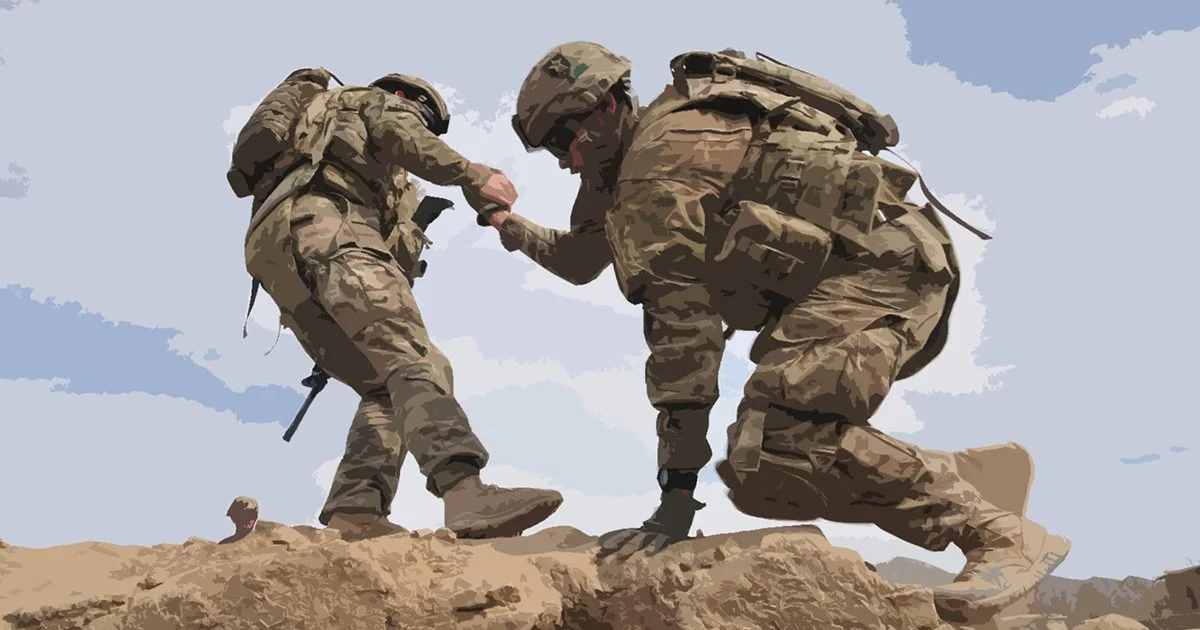Love is at the Heart of Effective Leadership
Humans are, above all, social beings. Our connections and relationships with one another are essential elements of our well being. When we fail to give compassion and guidance for others who are in our care, we also are failing to fulfill our fundamental purpose as social creatures.
Even the most compassionate, others-centered people can react with cold, harsh, and indifferent responses when they feel challenged, put on the spot, or threatened. In the cases of new leaders, feelings of insecurity can drive them to make sure people know who’s in charge, which makes the demonstration of power more about the leader than about the people they’re leading.
As a part of his retirement speech on June 11, 2003, General Eric Shinseki gave a masterclass in the importance of humility and servant leadership. As a veteran of two tours of combat in the Vietnam War, a recipient of three Bronze Star Medals for valor and two Purple Hearts, a former U.S. Secretary of Veterans Affairs and Chief of Staff of the Army, and a director for several corporations in the private sector, Shinseki is an experienced and pardon the pun, “battle tested,” leader, albeit one who has had failures and setbacks.
In his 2003 speech, Shinseki drew a sharp distinction between command and leadership. “Flexing one’s authority is not equivalent to showing leadership. The authority to command others and give orders is one thing; leadership is something different: inspiring others to want to work with you and for you,” he said. “It has to do with values internalized and the willingness to sacrifice or subordinate all other concerns-advancement, personal well-being, safety-for others.”
More than just sacrificing self-serving concerns, though, leadership is about loving the people you lead.
“You must love those you lead before you can be an effective leader,” Shinseki said. “You can certainly command without that sense of commitment, but you cannot lead without it; and without leadership, command is a hollow experience-a vacuum often filled with mistrust and arrogance.”
Authority without leadership, therefore, is corrosive, destructive, and toxic.
Far from empty words, this view of the responsibility of leadership is shared by Lt. Col. Pete Kilner, Professor of Leader Development and Organizational Learning at the U.S. Military Academy. In addition to his own service of more than 28 years in the Army, Kilner has interviewed hundreds of soldiers while studying combat leadership. This research comes together with his own lived experiences to shape the views on leadership he now shares with others.
In an article entitled, “Love is at the heart of effective leadership,” Kilner admits that the idea that “leaders should love their soldiers” was more of a corny cliche than valued advice early in his career. In those early years, the best way for him to love his soldiers was by making sure they were competent, which was exemplified by the mantra, “they may hate me now, but they’ll love me later.”
Kilner’s approach, he admits, led him to think of his soldiers as “human resources to be developed, trained, and led to accomplish missions,” rather than human beings with goals and lives outside of their military roles.
One of Kilner’s peers then challenged him to reconsider how he viewed his soldiers by asking, “Do you think of your subordinates primarily as soldiers who happen to have personal lives on the side? Or, instead, do you think of them primarily as people just like you who happen to be soldiers at this point in their lives?”
These questions transformed how Kilner saw leadership, in part because of how he wanted his leaders to view him.
“As a soldier, I wanted to believe that any leaders who might send me on life-threatening missions would at least recognize that my entire life, not simply the welfare of one of their soldiers, was at stake.”
Kilner argues that this “recognition of each soldier’s humanity” allows leaders to empathize with their soldiers, making those relationships less toxic and more effective, while also humanizing enemy combatants and civilians, which can decrease immoral behavior in the course of war.
While it is easy to see how this type of leadership can make it possible for leaders to sacrifice their lives for their soldiers, it is inspiring how it can prompt them to sacrifice their careers to protect their soldiers, too.
Kilner shared a story of an Army captain who was facing a career-ending reprimand for a bad error in judgment. The captain’s superior, however, took full responsibility for the climate in which his subordinate made the mistake, saying, “If someone’s career is going to end over this, let it be mine.”
After all, sacrifice is the greatest expression of leadership-and love-that any person can make.



